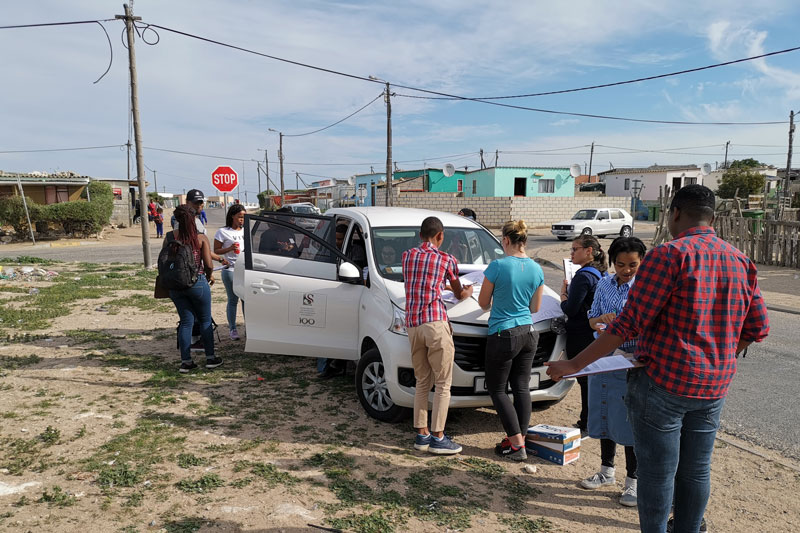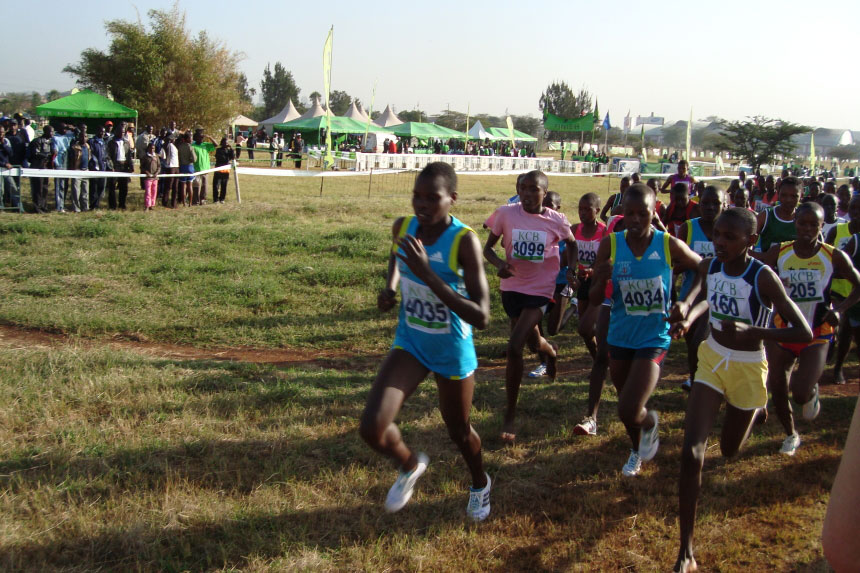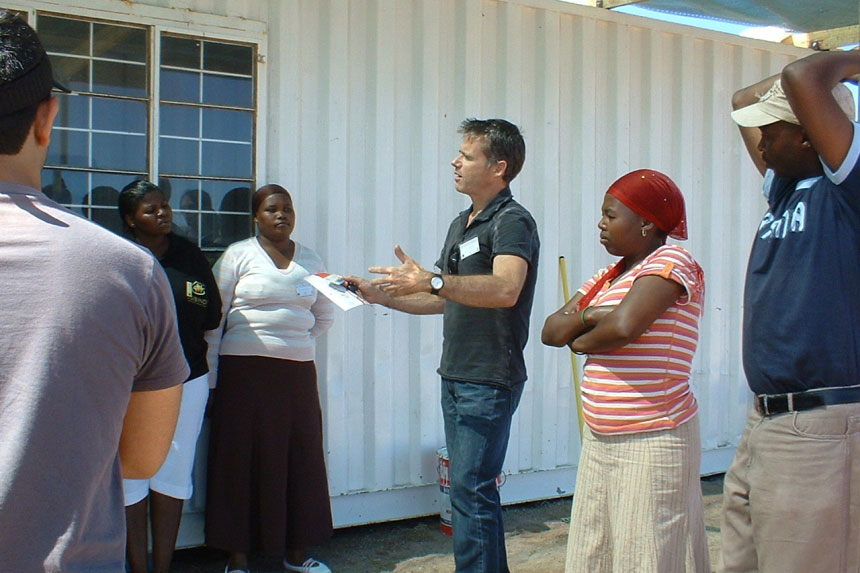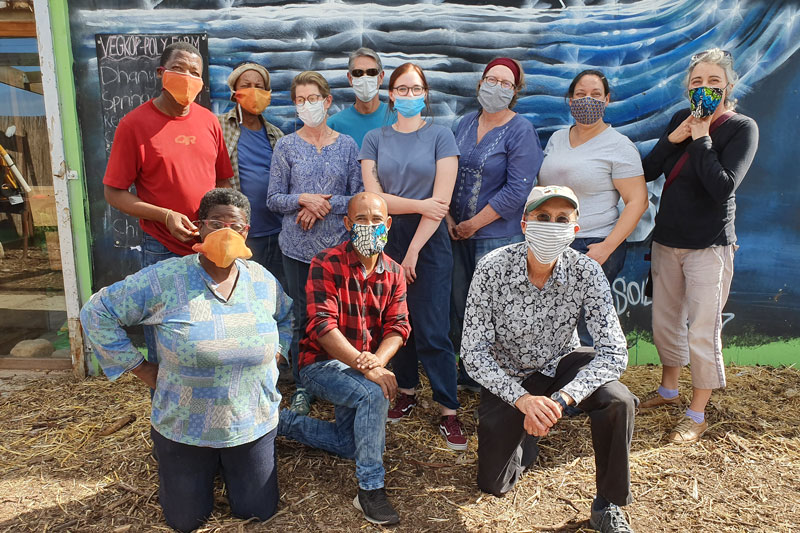Social Impact
The Department of Sociology and Social Anthropology subscribes to the mission statement of Stellenbosch University, which emphasises that its teaching and research must be to the advantage of the broader community as well as the institution itself.
Within the Department staff and students are involved in different aspects of Community Interaction through teaching and learning, research and through engaged scholarly activities as professionals and students. Two registered projects on the Division of Community Interaction (DCI) SU database, are the annual community survey and a service-learning module in Community Development.
Projects

Saldanha Project
Prof Lindy Heinecken obtained Stellenbosch University Social Impact funding to conduct a skills and talent audit among the youth in the Saldanha Bay Municipal (SBM) district. Accordingly, this social impact project set to out to establish the different skills sets and talents among the youth, their entrepreneurial capacity, career/work interests and education, training and development needs.
The ultimate aim is to link the youth with various organisations/ role players (IDZ training centre, West Coast College, etc.) in order to develop professional skills programmes tailored to the profile of the youth, their interests and the needs of the business sector. In terms of Stellenbosch University, the aim of this social impact grant is to provide students from the Department an in-service learning opportunity to conduct fieldwork, process and analyse the data collected.

Community Surveys
Staff and Honours students from the Department participated in community surveys from 2009 to 2013 in a designated area of the Western Cape, and in collaboration with the DCI. This study provides Honours students with an in-service learning opportunity that entails fieldwork in an environment where their research efforts could make a contribution to community development. The reports from these studies are made available to the university community and broader public.
In 2013, the study was conducted in Klapmuts and focused on the perceptions of residents of what it means to live in Klapmuts, which resources they are accessing and also what the key challenges in this community are.
In 2012, a similar study was conducted in Kayamandi and Cloetesville and in 2011 in Avian Park in Worcester.

Service-learning in the Department
Undergraduate students enrolling for Sociology 354 (a third-year module in Community development in the second semester) get the opportunity to take part in the departments service-learning activities. In this module students are placed with partner organisations, which offer students an experiential learning context within the communities where the partner organisations are located.
The primary objective of the service-learning programme is to provide sociology students with the opportunity to conduct community based qualitative research. These mini-studies are planned and conducted through the guidance of the service-learning organisations and academic staff. Students complete research reports at the end of the semester and the findings are then disseminated back to the service-learning organisations and relevant communities during a feedback session.
Partner organisations
Most recent community partner organisations include:
- @Heart (Stellenbosch)
- Department of Conservation Ecology and Entomology (SU)
- DOE (Kalkfontein)
- DOE (Worcester)
- Huis Horison (Stellenbosch)
- Inspire to Read (Ikhaya Trust, Kayamandi)
- Jesse Keet Crèche (Idasvalley)
- Kuyasa (Kayamandi)
- Legacy Project (Kayamandi)
- Office for Institutional HIV Co-ordination (SU)
- Prochorus (Kayamandi)
- Prochorus (Jonkershoek)
- Solms Delta wine estate (Stellenbosch)
- Speelkring (Idasvalley)
- Stellemploy (Stellenbosch)
- Vision Afrika (Kayamandi)
For more information on service-learning in the Department, contact Jacob du Plessis.

